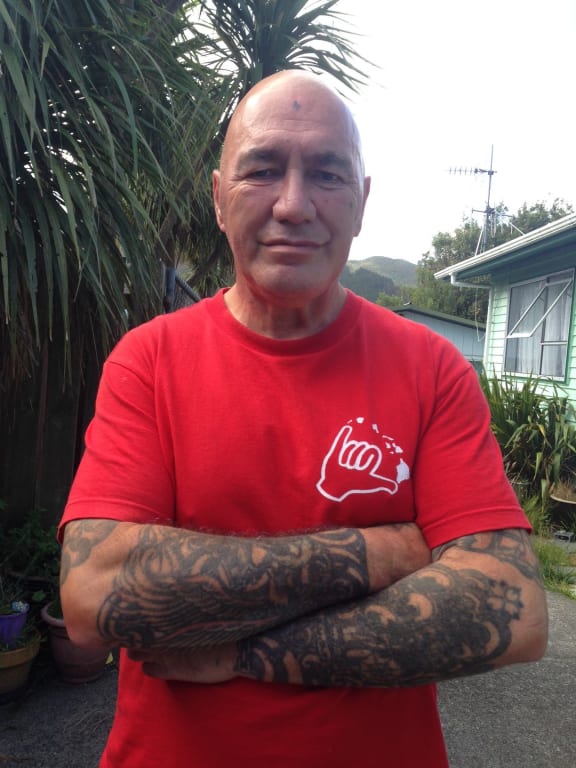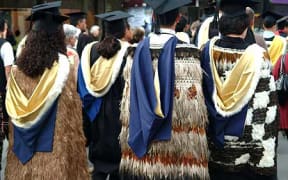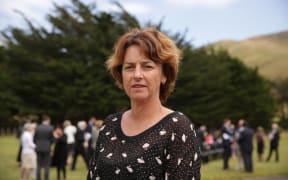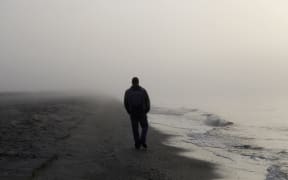The Movember Foundation is spending $576,426 to try to improve the bleak outcomes for Māori men with prostate cancer.

Graeme Harper at his Wainuiomata home. Photo: RNZ / Leigh Marama McLachlan
The disease kills about 600 men in New Zealand each year, however Māori men who are diagnosed with prostate cancer are 70 percent more likely to die from the disease than non-Māori.
Research is being conducted at the University of Auckland and the University of Otago to see what can be done to improve their lives.
Graeme Harper of Ngāi Tahu has lived in Wainuiomata for 20 years and said he was no stranger to the health system when he was diagnosed with prostate cancer in 2013.
"I've had a heart attack. I died for 5 minutes and a year later I had a triple heart by-pass, then came the prostate cancer."
"I've just had to deal with it. I don't just lie down and let it happen to me - I reach out for help."
Mr Harper was one of 205 Māori men who found out they had prostate cancer in 2013, but he was one of the lucky ones who caught it in time.
Ministry of Health figures showed that by the time Māori men found out they had the disease, they were already twice as likely as non-Māori to have it at an advanced stage.
The figures also showed Māori diagnosed with the disease were 72 percent more likely to die from it than non-Māori.
"There are unlucky ones" Mr Harper said. "I just like to think that I haven't got it. Because people get down, people get depressed."
The 63 year-old endured radiation therapy and has had to learn to lead a healthier lifestyle.
Fortunately for him, whānau put him in touch with local support services which run exercise classes and helped him to eat better and look after himself.
He said that aside from routine appointments, Wellington Hospital did not offer much support to him.
University of Auckland senior lecturer Jacquie Kidd said many Māori men with prostate cancer are missing the type of support that Mr Harper relied on.
The current system was not serving them well, Dr Kidd said.
"We talk in healthcare a lot about holistic care and individualised care, but in actual fact we don't deliver either most of the time. So we will have whānau at home who struggle on for ages when there are services sitting right there, but there is no bridge."
Dr Kidd said in some instances, Māori did not see that some support services would benefit them because they are delivered in a Pākehā way, which does not feel welcoming to them.
She will be co-leading a new Māori prostate cancer study alongside Māori health specialist Rawiri Blundell and Otago University senior lecturer Richard Egan.
The project received $576,426 from the Movember Foundation and aimed to provide support services to Māori men who have just found out they have prostate cancer and to their whānau.
Mr Egan said there was a fundamental inequality in prostate cancer survival rates for Māori which happened for no biological reason.
"There is something about the environment. There is something about what is going on in that whole situation ... It is important to see if we can improve it."
Prostate Cancer Foundation chief executive Graeme Woodside said Māori men did not seem to receive the same options for treatment that some other men received.
"That may be something in the way that Māori men are dealt with by the medical profession. It might be that they are in more remote areas and can't access the more sophisticated treatments."
Mr Woodside said that when men have prostate cancer it affects the whole family, and he was pleased work was being done to support the unit as a whole.
The new study would include participants in Otago and Waikato and run for 3 years.






